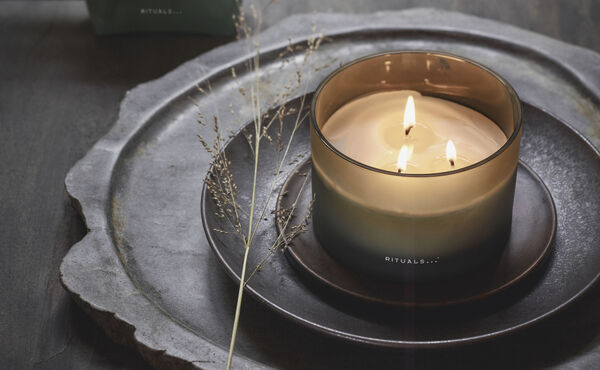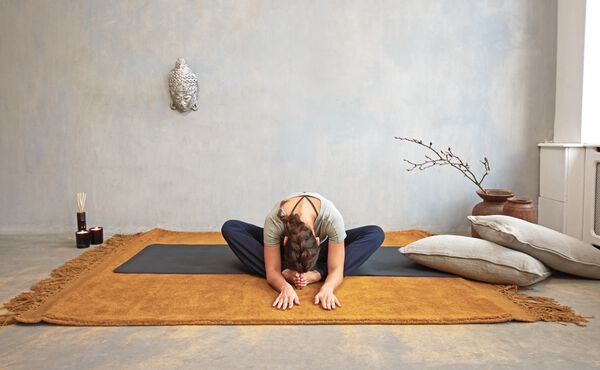Rushing from task to task, our attention is often grabbed by distractions. We clog up our to-do lists under the shower, we check our phones while we’re having a conversation, and we post photos of our food during dinners. Discover how you can learn to take control of your attention through simple everyday practices that involve the five senses.
Attention makes everything more beautiful, so goes the captivating slogan dreamed up by Swedish superbrand IKEA. But that isn’t always true—placing attention on your fears or anger, for example, will not make those negative feelings more beautiful. It will make them grow. Attention makes everything grow.
That’s why attention has such a big impact on your happiness and well-being—essentially, your experiences are determined by what you bring your attention to.
But taking charge of your attention and where it goes is not easy, especially in a hyper-connected world where distractions are constantly competing for your attention and pulling you away from the present moment. The items on your to-do list, your inbox, your phone, the many open tabs on your laptop screen—distraction is everywhere, all the time. As a result, your attention becomes scattered and your mind can easily become crowded with uninvited and unwanted thoughts.
Mastering your attention
So what if we could decide what we pay attention to? What if we could simply choose to dwell on thoughts that empower us and pay no mind to the ones that restrain us? There’s no doubt about it—we’d be living more tranquil, joyful and purposeful lives.
Although you can’t eliminate all distractions from your life, you can learn to direct your attention where you want it to go. Zen Buddhists have been doing it for thousands of years. In ancient times, Zen monks devotedly strengthened their “attention muscle” through carefully prescribed ceremonies. Some of those ceremonies, such as the traditional Japanese tea ceremony known as chadō, are still widely practiced today as a way to cultivate the art of attention.
Engaging all the senses
With its complex set of rules and ceremonial steps, the Japanese tea ceremony can take years to master. But the idea on which it is based is simple: it’s about fully experiencing and appreciating the moment by paying total attention to the scents, sounds, sights, tastes and sensations around you. That’s something you can practice anytime, anywhere.
Using your senses attentively and intently is a powerful exercise that pulls your attention away from distractions and into the present moment. Let’s take a look at each of our senses and how they can help us master the art of attention.
1. Sight
Looking is not the same as seeing. You look at countless things on any given day, but most of those things don’t make it into your conscious attention. By focusing your eyes with intent, you can train yourself to become more aware—and more in control—of what you notice and observe. You can do this at home or as you’re walking the dog, or you can try a more formal practice such as a candlelight meditation or a sky gazing meditation. As you attentively gaze at an object, a flickering flame or the clear blue sky, let the stillness of your eyes bring stillness to your soul.

2. Sound
We often ignore the sounds that fill our daily lives. But instead of tuning them out, why not try taking them in? To practice deep listening, simply close your eyes and bring your attention to the sounds that appear and disappear around you. When you hear a sound, don’t merely notice it and shift your attention back to something else—keep following the sound all the way to its end.
3. Smell
The sense of smell is an incredibly powerful one. Smell can calm, excite and trigger memory. A forest walk offers the perfect opportunity to explore the effects that different scents have on you. Pine forests are especially magical places for a smelling expedition, since coniferous trees give off powerful and distinctive scents. As you walk through the forest, fully focus your attention on the scents that surround you and discover how they affect your body, mind and soul.
4. Taste
Can you remember what your breakfast tasted like this morning? Can you recall the flavours, textures and aromas? Chances are the answer is no. In our busy lives, eating has become something that is often done quickly and without conscious attention. Try to bring attention to each meal you have. That way, every single bite becomes an exercise in awareness and attention.
5. Touch
Of all the senses, touch is perhaps the most overlooked. While our sense of touch affects us tremendously, it’s so ever-present in our lives that we often pay little attention to it. Tune into your sense of touch by bringing awareness to everyday moments of tactile contact. Feel the touch of the water falling on you as you’re standing under the shower. Notice the sensation of your clothes on your skin. Or try doing the dishes with your eyes closed.

.jpg?sw=600&sh=370&sm=fit&cx=505&cy=0&cw=722&ch=445&sfrm=jpg)
.jpg?sw=600&sh=370&sm=fit&cx=0&cy=0&cw=600&ch=370&sfrm=jpg)



